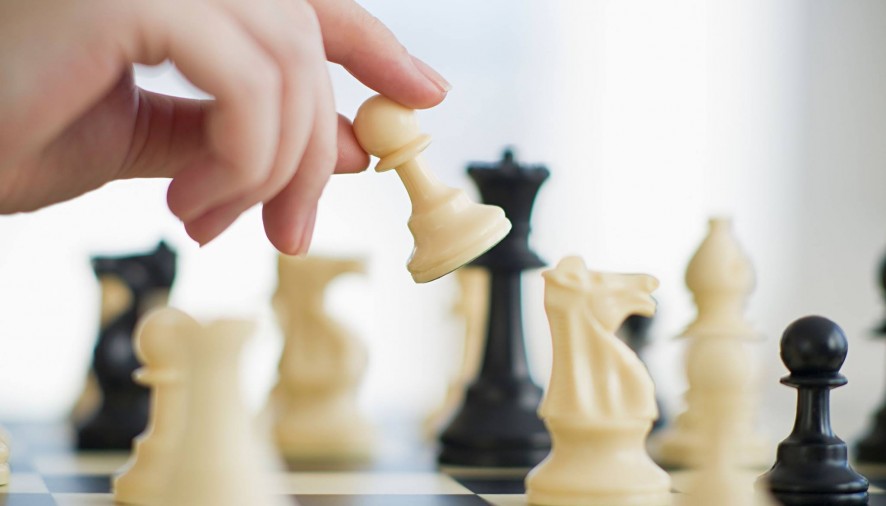I was surprised to learn earlier this week that Saudi Arabia’s Grand Mufti, Sheikh Abdul Aziz bin-Abdullah al-Sheikh, has called for chess to be forbidden on the grounds that it is “a waste of time”, “an opportunity to squander money”, and it causes “enmity and hatred between people”, arguing that the game runs against the teachings of the Quran.
What’s immediately odd is how you can call an abstract strategy game with perfect information – in other words, a game where there is nothing left to chance and each player knows exactly what’s going on at any point – a gambling game. Now of course, people can make wagers on chess games. But if you can do that in chess then you can do it in virtually any other game. Will the Mufti ban all of them too? It seems a rather odd definition of “gambling” which has little to no limits on its applicability. So the argument that chess is somehow a morally perverse enabler for gambling seems daft to me.
What of the other charges made against chess? I can’t deny that, on the face of it, chess is a waste of time. Unless you live an astonishingly untroubled life, there are definitely far more important things to do than push little pieces around a board.
But does that make chess worthless? Of course not. For one thing, chess is a great way to train your brain, as it encourages the player to think logically, strategically, and even creatively. It rewards patience, and the ability to make a plan and see it through. I’d be very surprised if anyone came up to me and told me those attributes were “worthless” in life. Along with that, there’s the old adage “time you enjoy wasting is not wasted”. Playing a game of chess can be fun, it won’t change anything, but does it really have to? If anything that didn’t have a direct impact wasn’t worth doing, then large parts of everyone’s lives and identities would be ripped up by this principle. Going out to eat a nice meal; listening to some catchy music; adding the last few brushstrokes to a painting masterpiece. It won’t really do anything, so why bother? After all, it’s just a waste of time when you look at it like that.
But for the people who enjoy those activities, that’s not how it works. They do these things because it bring them happiness, peace, clarity, whatever it is they’re looking for. Usefulness isn’t the only quality worth pursuing. So if people love to play a game of chess, why deny them that right? It’s not like it’s doing anything bad – it’s not doing anything to you at all. Isn’t it enough that chess brings a smile to the faces of those who play it?
It’s also true that, sometimes, chess can generate enmity between opponents. But for the most part, chess isn’t like that. Chess players can be young, old, casual, competitive, laid back or intense – but rarely will they come to blows. In fact, the nature of chess – as a game where there’s no such thing as luck and each player uses only their intellect – makes it that much easier to accept defeat gracefully, as it is clear to see why you lost and how you can improve in future. For that reason, much of the time chess players will take a defeat as a mistake on their part and a lesson for the future rather than a blow to their honour. That’s not to say a game of chess won’t bring tensions between players, but to say it sows “hatred” is downright laughable. There are lots of things that have the potential cause hatred – religion being one of the many that come to mind – and chess seems pretty low down on this list.
I suspect the real reason for this hostility against chess is because it’s a game that encourages independent thinking, making decisions for yourself, and enhances mental agility. Not things that tend to sit well with conformity and conservatism. Perhaps that’s why the Grand Mufti is so concerned about chess: in a country that views freedom with suspicion, chess is in a strange way a bastion of independent thought. Maybe that’s why the Grand Mufti feels the need to stamp it out.
A comment I saw online also gives another great reason to ban chess: in chess, the Queen has freedom of movement and is considerably more powerful than the King, whose reign on the chess board is often brought to a bloody end with the word “checkmate” – historically derived from the Persian phrase, “shah mat”, which means the King is helpless and defeated. We can’t be having that in Saudi Arabia now, can we?
Sam Robinson
Image property of tetra images/Alamy.

